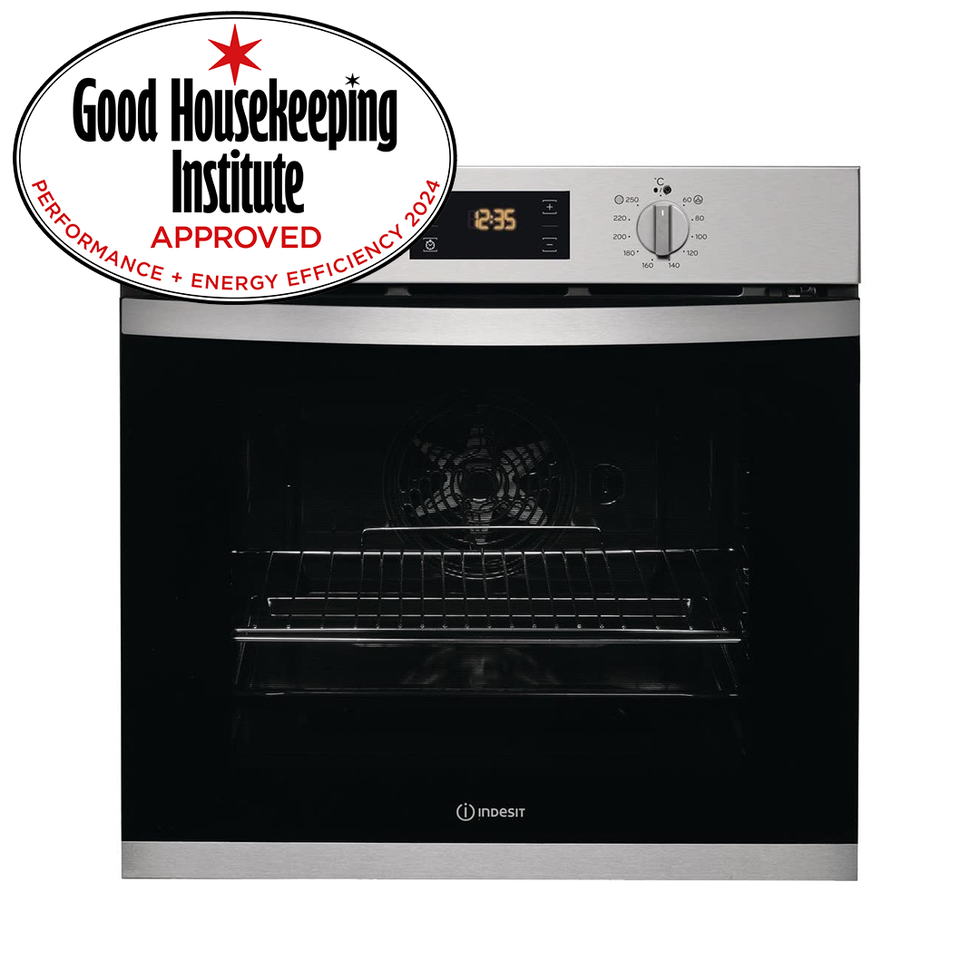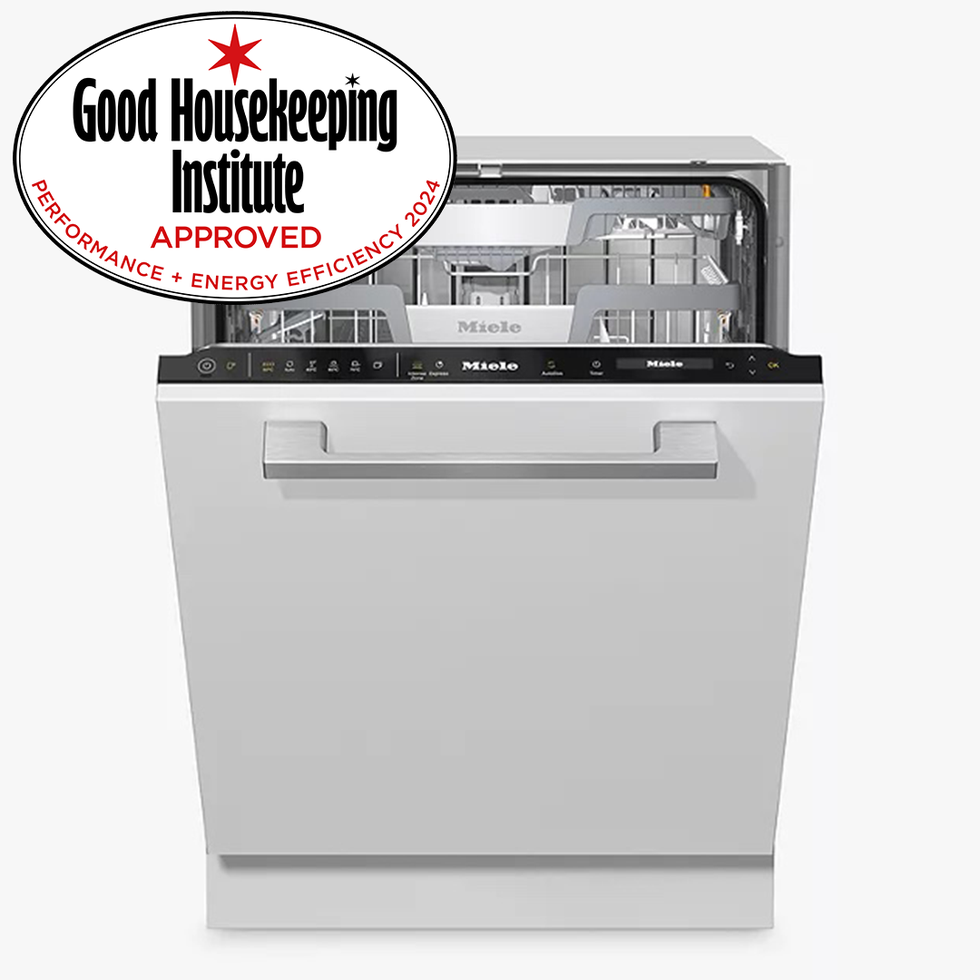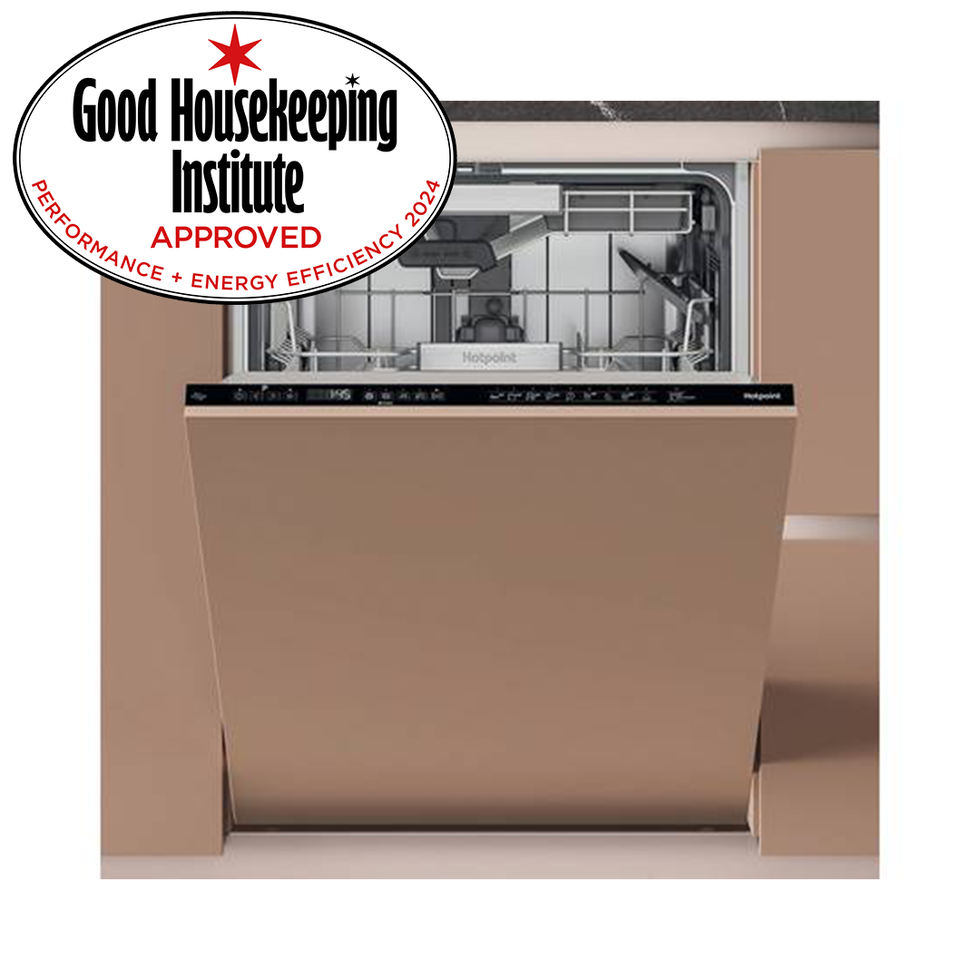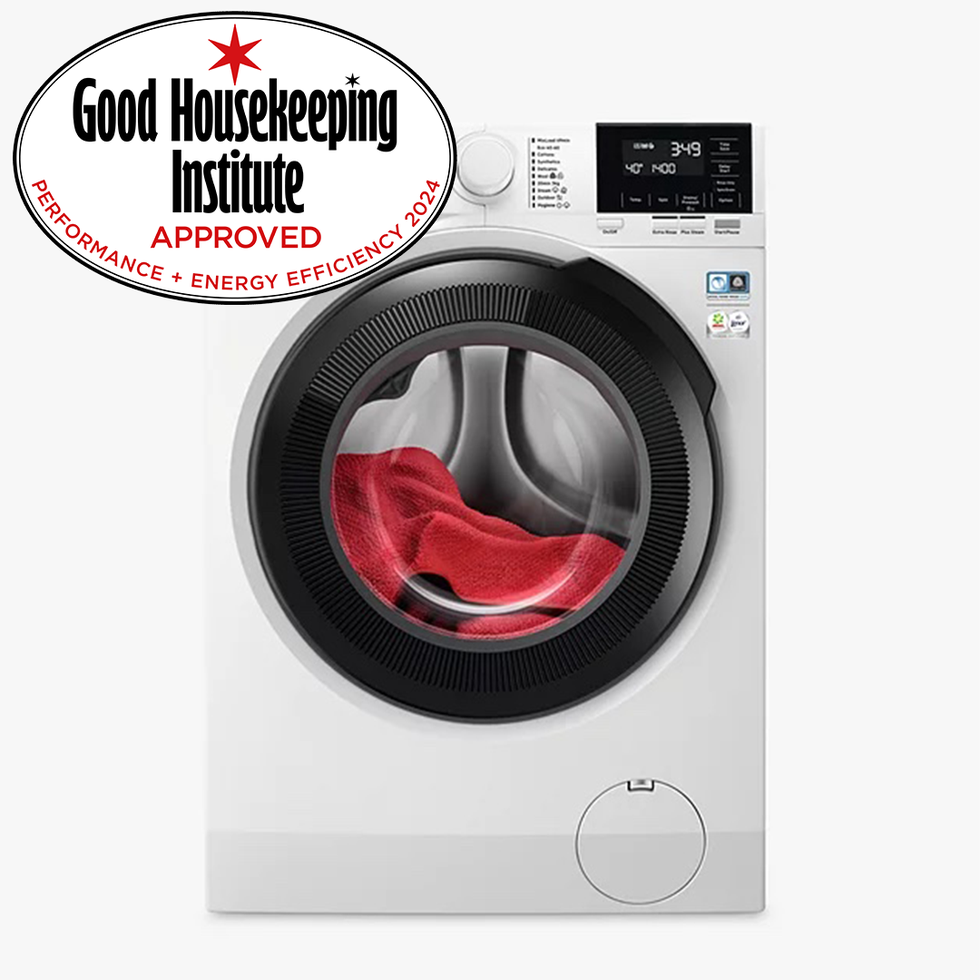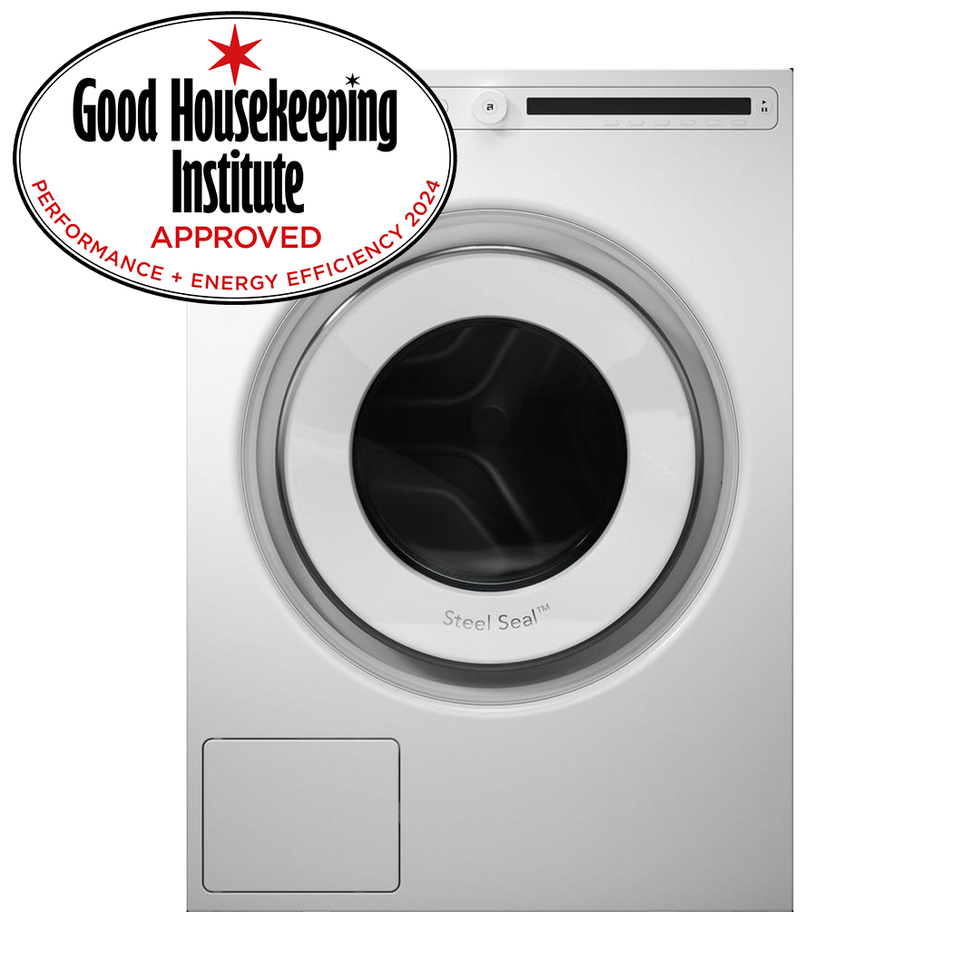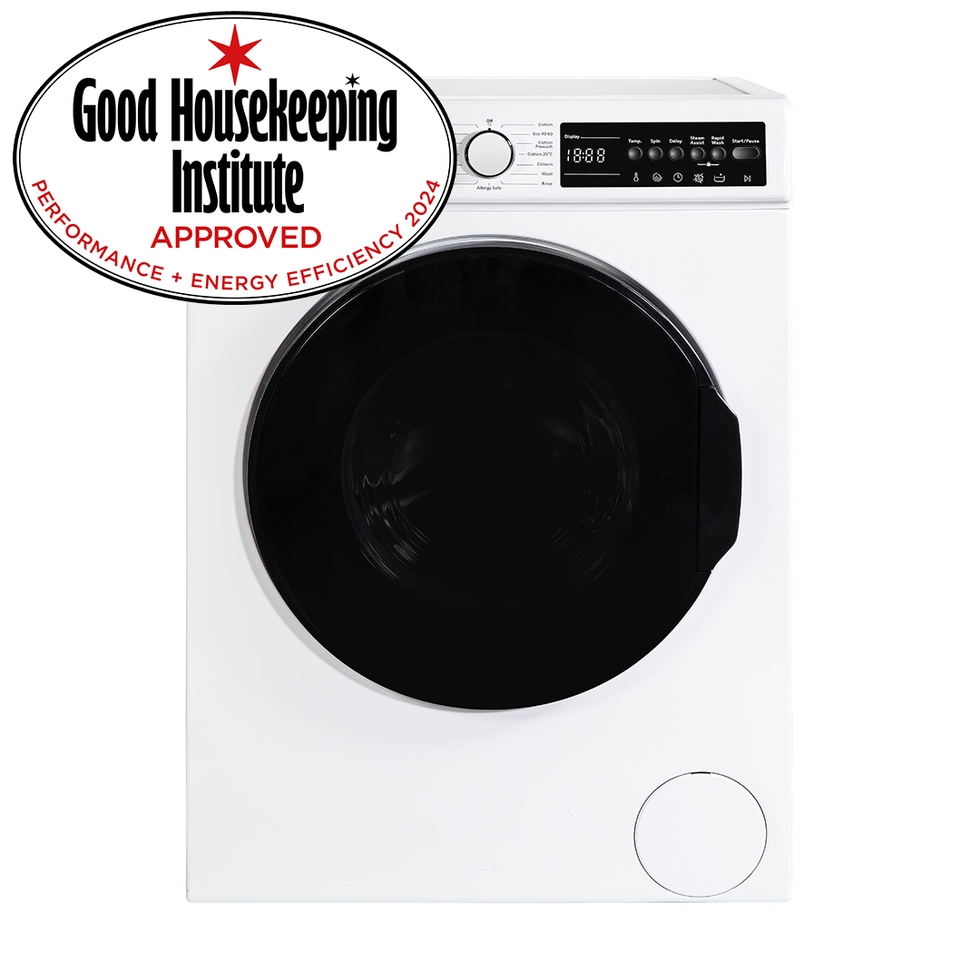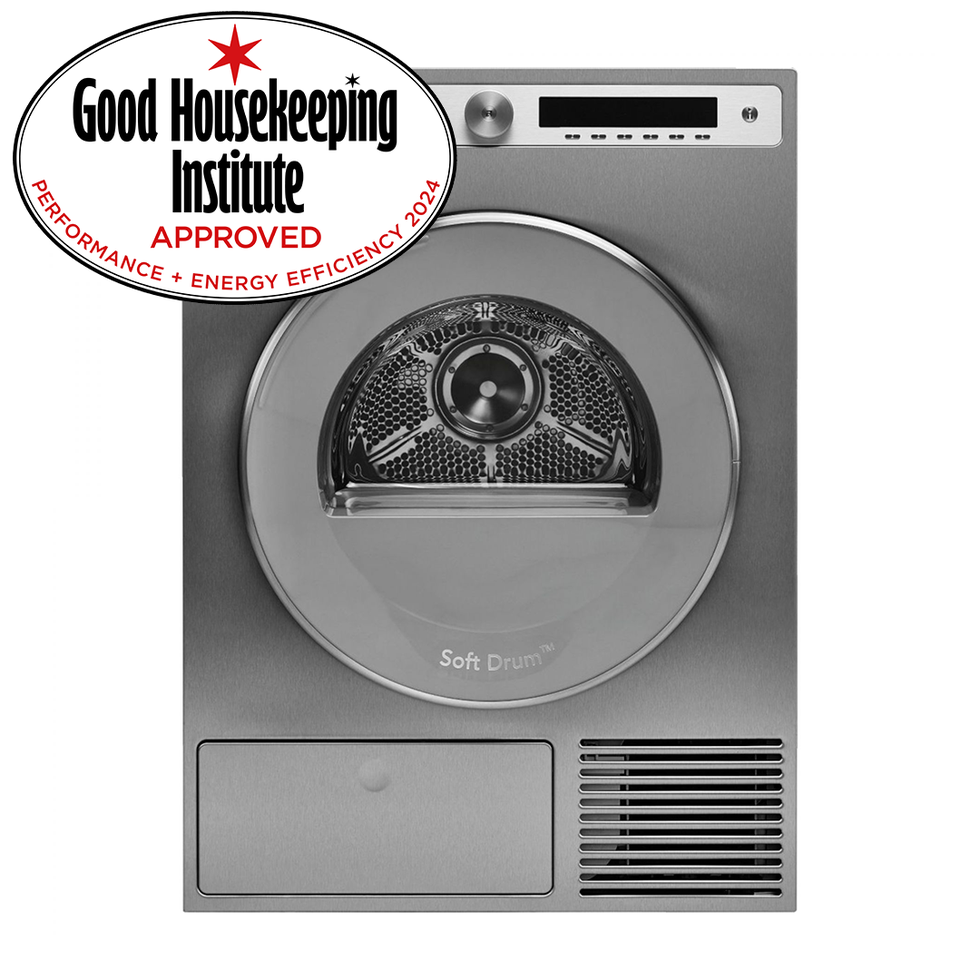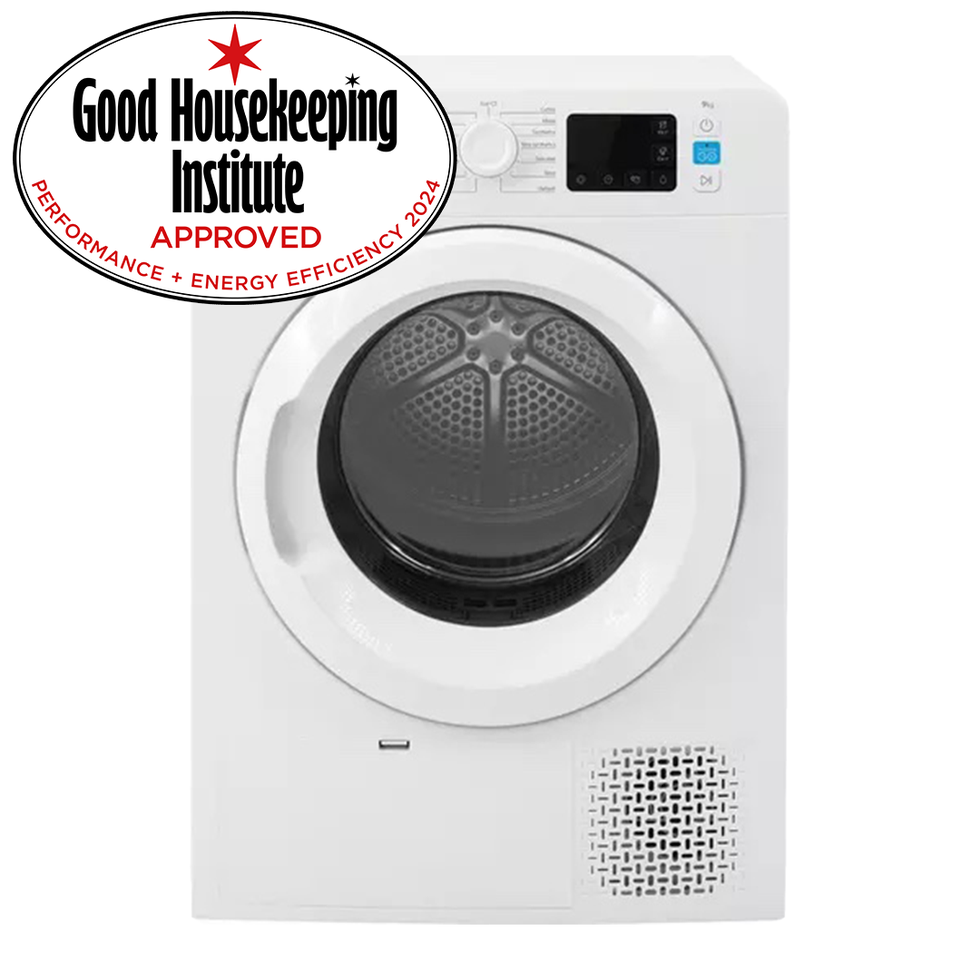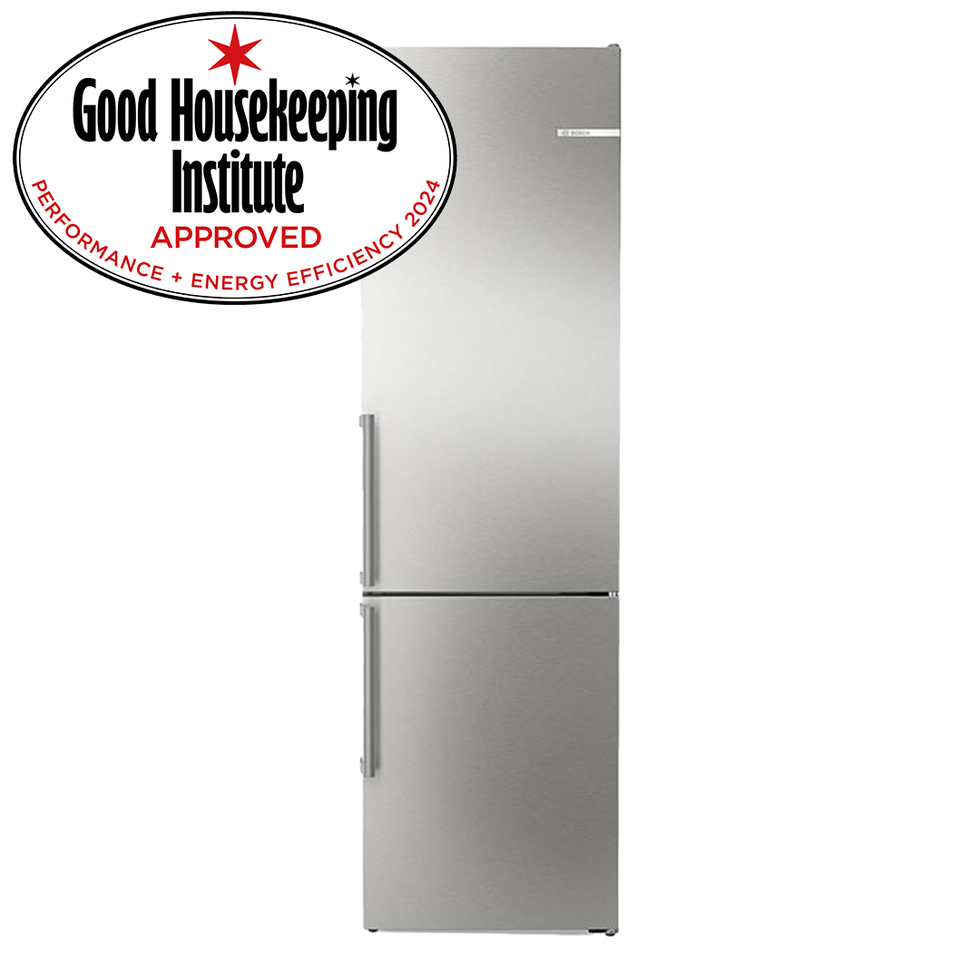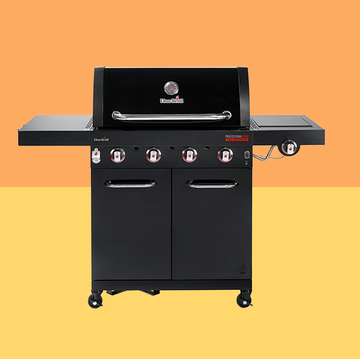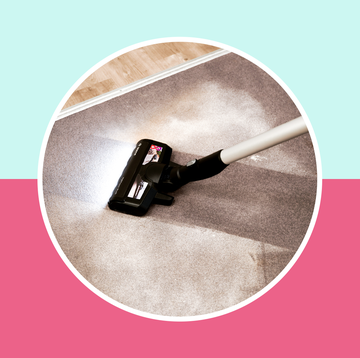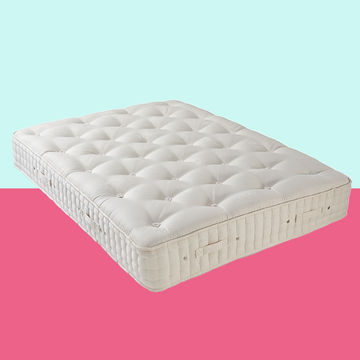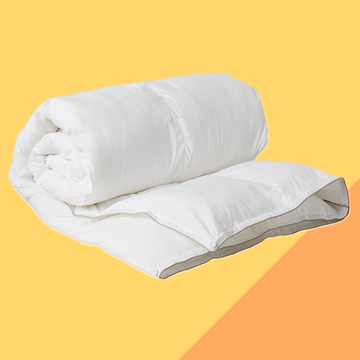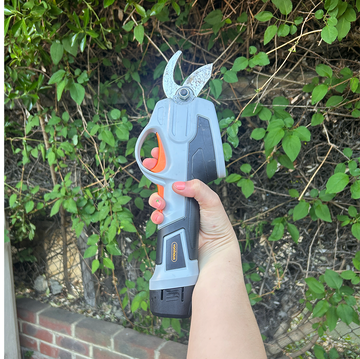We earn a commission for products purchased through some links in this article.
A complete guide to the best energy efficient appliances for your home
Save money and energy by switching to the GHI's tried and tested

Rising energy prices mean we’re all looking for ways to save money on our bills and reduce our electricity consumption right now. Plus, using less energy is better for the planet, too.
One simple way of doing this is to invest in more energy efficient appliances when yours need replacing, whether it’s a washing machine, oven or even a fridge freezer – and helpfully, brands are continually finding new ways to improve the performance and energy ratings of their offerings.
However, knowing which appliance is going to deliver on both performance and energy saving isn't always easy. That’s why we launched the GHI Performance + Energy Efficiency logo earlier this year – here to help demystify the search.
The Good Housekeeping Institute Performance + Energy Efficiency logo
Intended to provide peace of mind when shopping, the latest GHI logo highlights when a kitchen appliance has not only passed our rigorous quality assessment tests for performance, but we've also confirmed in testing that its energy usage is consistent with the energy efficiency class on the product.
We hope this will make it easier for you to invest in appliances that do the job you need and use energy more efficiently every time you switch them on. Just look for the logo to see our approved picks.
To help start your search, we’ve rounded-up the very best buys that meet our standards for the new logo, as well as detailing exactly what makes an appliance more energy efficient. At a quick glance, here are our experts' top picks:
What is an energy efficient appliance?
It’s easier than you may think to find out if a home appliance is efficient or not. This is because every larger home appliance (as opposed to smaller ones such as air fryers, kettles and toasters) comes with an energy rating label, awarded based on typical household usage.
Most are rated on a scale from A to G (with G being the worst), so you can quickly compare similar appliances based on how much energy they use to run. There are still some products, such as tumble dryers and ovens, that are rated using an old scale of A+++ to D; however, this is in the process of being phased out.
Washing machines are also rated on their spin efficiency and water consumption, giving you a fuller picture of the appliance’s performance.
If you’re replacing an existing appliance, there are plenty of places for you to safely recycle your old one. Find your nearest electrical recycling point, or read our guide on how to donate or dispose of your appliances and tech for extra guidance.
According to Joanna O’Loan, Energy Saving Trust’s Knowledge Manager, upgrading your kitchen appliances does make a genuine difference to your bills. “Upgrading your dishwasher from an E rated model to a model rated A could save you £30 a year, while upgrading your fridge-freezer from an F to an A could save £50 a year,” she says.
“You should also consider the size of the appliance you actually need as this can help you find ones that use the least amount of energy.”
While cutting £80 a year off your energy bills may not seem like a lot when you’re potentially spending hundreds on new appliances, when you tally that up over the lifetime of the product, the money saved quickly adds up.
Why are energy efficient appliances better for the environment?
More money in your pocket isn’t the only reason it's worth considering the energy efficiency of an appliance. The more economical they are with electricity and gas, the better they are for the planet.
That's because by using less energy, these appliances rely on fewer fossil fuels to give them power, reducing the emissions being released into the atmosphere and consequently, your carbon footprint. You can also consider green energy tariffs.
As water is also an essential resource, dishwashers and washing machines that use it sparingly and more effectively are also more environmentally friendly.
How much energy does my appliance use?
It’s impossible to precisely calculate how much energy your new appliance will consume, as it varies based on individual usage, including the programme or cycle being used. But there are ways you can work out a topline figure if you want to know how much a new appliance will cost versus your existing one.
Firstly, you need to check the energy label information and see what it's consumption figures are. If we take our winning washing machine, the AEG 7000 freestanding washing machine, it says it's A-rated and claims to use an average of 42kWh per every 100 washes.
Dividing 42 by 100 tells us the machine uses roughly 0.42kwh of electricity every time you do a load of laundry.
If you multiply this by the energy price cap (correct as of 1 July 2024 to 30 September 2024) – that's 22p for every kilowatt-hour used – then you'll be paying around 9p per wash with the AEG washing machine.
How we test at the GHI
Any appliance eligible for the new logo must pass the same stringent performance testing as every product we review in the GHI. But to find the most energy efficient appliances, we have added in a new layer, measuring the best performing large domestic appliances against benchmarks based on their energy ratings and the readings we take during testing.
This varies between categories. Some domestic appliances such as tumble dryers and washing machines are generally more energy efficient than other white goods like fridge-freezers. This means there's one fridge-freezer we've tested that we would recommend as energy efficient: the A-rated Bosch Series 6 Freestanding Fridge Freezer.
However, all our best tumble dryers and washing machines have high energy ratings so, to select the products featured below, we’ve also taken the performance, ease of use, and design of each product into consideration.
All our energy consumption figures are based on reviews completed in our lab conditions and across the tests our experts carried out. For example, the energy consumption readings for our best ovens was during our temperature accuracy tests, while the usage for dishwashers was an average of the three different programmes (standard, economy and intensive) our experts trialled.
This means our energy consumption figures may differ slightly from those shared by the manufacturers and the exact price they would cost you to run at home. But, using the new energy price cap of 22 pence per kilowatt hour, they still provide a good idea of how much each appliance will cost on a daily basis.
Scroll on for the GHI's best performing and energy efficient appliances.
Megan is the Good Housekeeping Institute’s homes writer. She loves diving into the latest product releases to find the very best buys on the market. When she’s not writing about the newest gadgets and gizmos for your home and garden, you’ll find her cooking, running and exploring London’s foodie hotspots – or trying to make friends with every dog she passes. Megan has an MA in Magazine Journalism and has previously written for Stylist, Glamour, TimeOut, SquareMeal, and YOU magazine. You can find Megan on Instagram @meganlouisegeall and on X @megan_geall
Blossom is passionate about finding the best home products and appliances for GH readers. As head of the homes testing team, she has led reviews across multiple categories, from pizza ovens, and smart plugs to portable fans and hobs. She enjoys delving into the intricacies of products and refining testing protocols to ensure we’re testing them against their claims. Her aim is to find the top-performing products on the market, to help take the hard work out of housework. Blossom’s most notable accomplishment in the lab has been toasting 528 slices of bread in her quest to find the best toasters money can buy. In her free time, she openly admits to being a music geek and indulges her creative side through crocheting, baking, singing and writing.


6 best family tents, tried and tested

The best weighted blankets, tried and tested
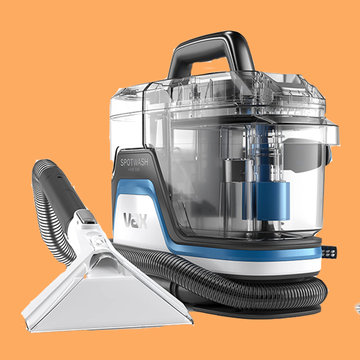
The 13 best spot cleaners, tried and tested
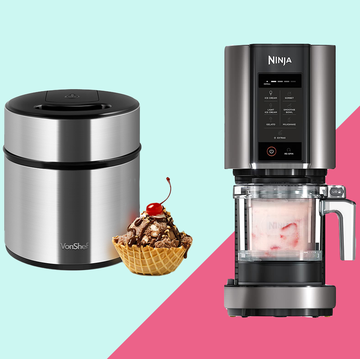
10 best ice cream makers, tested by experts

